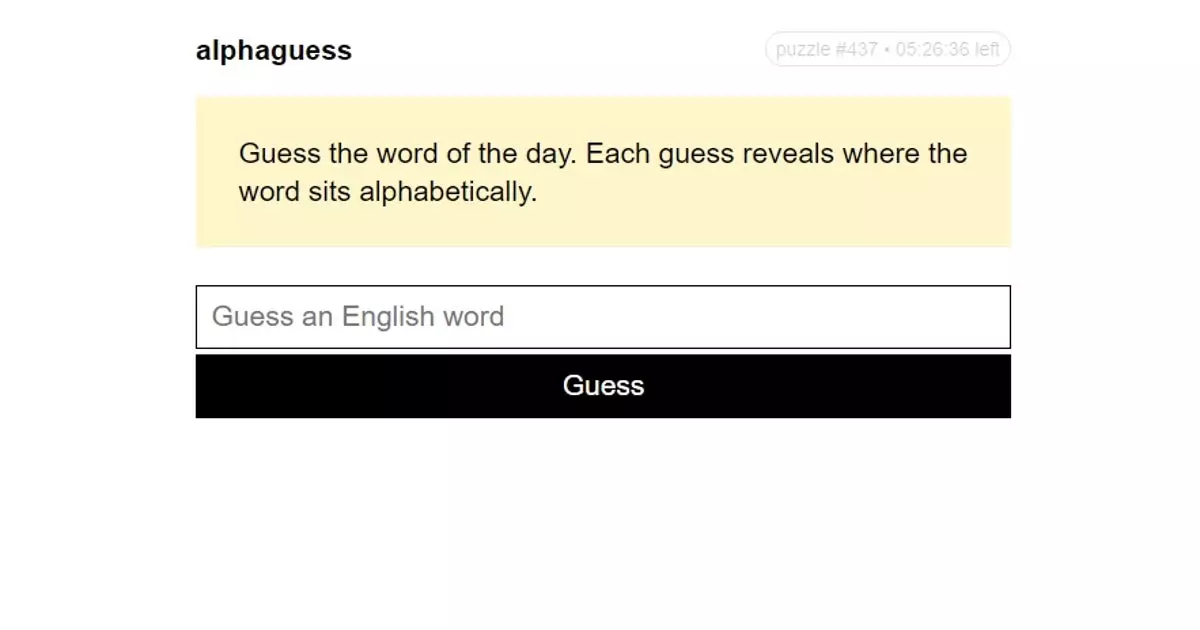In an age driven by relentless efficiency and productivity, one might question the value of distractions. Enter the realm of online word puzzles. A single person’s quest to derail productivity turns out to be an investigation into our innate desire for leisurely mental challenges. Notably, games like Alphaguess and Scrambled Maps have emerged as intriguing tools that break the monotony of work, providing a brief yet engaging respite. Alphaguess, in particular, invites its players to guess a word while offering minimal guidance, thereby stoking curiosity amidst the chaos of daily obligations.
At first glance, Alphaguess appears deceptively simplistic—users take turns making educated guesses, with clues indicating whether the correct answer falls alphabetically before or after their guess. However, this basic structure creates a fascinating dynamic; the game fosters an engagement that transcends the superficial complexity found in other puzzles. As players grapple with their guesses, they grapple with their own mental limitations too.
For example, imagining guessing “muddle” as a starting word positions the player in the central alphabet, immediately doubling the potential number of guesses. Yet, with every layer of the guessing process, clarity becomes muddied as one’s cognitive load increases. It’s a reflection of how our minds often self-sabotage the productivity we crave by becoming entangled in strategic thinking, despite the game’s fundamental simplicity.
Describing these online puzzles merely as games would undermine their deeper psychological impact. They serve as a reflection of the human brain’s tendency toward pattern recognition and logical deduction. Unlike complex puzzles that require lateral thinking or sophisticated strategies, word games like Alphaguess provide a canvas of raw guessing, where success is merely a matter of time and perseverance—qualities we often overlook in a world that prioritizes swift results.
Despite lacking complexity, the action of guessing becomes entertaining, reminiscent of frivolous childhood games during long journeys or leisurely afternoons. They spark a sense of companionship with fellow players who take the same journey through the alphabet in their minds, each facing similar challenges and frustrations.
Acknowledging the diversion of Alphaguess and similar word games as destructive may miss a more nuanced point—these distractions can be reframed as necessary breaks in an increasingly digital and demanding world. They offer a reprieve, a brief escape from screens filled with spreadsheets and emails. By integrating fun into our productivity regimens, we find motivation not just in the work we produce, but also in the joy we rediscover through play.
Rather than stigmatizing our love for these online puzzles, we should appreciate them for their ability to invigorate our minds, offering a unique blend of entertainment and cognitive exercise. As we navigate our busy lives, perhaps the mission should be to embrace such playful distractions that catalyze creativity and productivity in unexpected ways.

